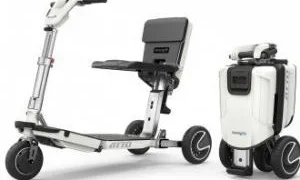When a plumbing issue arises, one of the first questions homeowners and businesses face is whether it’s urgent enough to call an emergency plumber. Emergency plumbing services are often associated with crises, such as burst pipes, sewage backups, or severe water leaks. However, many people wonder if emergency plumbers can also handle non-urgent jobs, such as routine maintenance, installations, or minor repairs.
1. What Defines an Emergency Plumbing Situation?
Before deciding whether to call an emergency plumber for a non-urgent task, it’s important to distinguish between what constitutes an emergency and what doesn’t. Emergency plumbers in Jacksonville are specifically trained and equipped to handle situations that, if left unresolved, can cause extensive damage to your property or pose a serious health risk.
- Examples of Emergency Plumbing Situations:
- Burst pipes or severe leaks: Water flooding your home can cause significant damage to walls, floors, and furniture.
- Sewer backups: A sewage backup is not only unpleasant but can create serious health hazards.
- Gas leaks: Plumbing systems involving gas lines can be dangerous if not repaired immediately.
- Water heater failure: A broken water heater can lead to a lack of hot water, which is a major inconvenience in households or businesses.
If your plumbing issue doesn’t fall into the above categories, it is likely a non-urgent problem better suited for a regular plumbing service.
2. Can Emergency Plumbers Handle Routine or Non-Urgent Tasks?
Technically, emergency plumbers can assist with non-urgent tasks like any other licensed plumber. However, emergency plumbing services are designed to prioritize urgent issues, and using them for non-urgent tasks may not be the best choice.
- Routine Maintenance: While emergency plumbers can perform maintenance tasks such as inspecting pipes and drains, routine maintenance is better suited to regular plumbers who can schedule visits at more convenient times without the added emergency service fees.
- Installation of Fixtures or Appliances: Tasks like installing new faucets, sinks, or water heaters usually fall under standard plumbing services. Emergency plumbers can certainly do this work, but unless it’s related to an urgent need (like replacing a broken water heater during winter), it’s best to contact a plumber who specializes in installations.
- Minor Repairs: If you have a small leak, clogged drain, or slow-flowing faucet, these issues might not need immediate attention. These tasks are better left for standard plumbing services, which are typically less costly and better suited for routine issues.
3. The Cost of Calling an Emergency Plumber for Non-Urgent Work
One of the most important factors to consider when deciding whether to use an emergency plumber for non-urgent tasks is the cost. Emergency plumbing services typically charge a premium for after-hours, weekend, or holiday work, as they prioritize urgent, time-sensitive jobs.
- Standard Plumbing Rates: Standard plumbing services tend to have lower rates and offer flexible appointment times that align better with non-urgent work. Routine maintenance, inspections, or installations usually fall within this category.
- Emergency Plumbing Rates: Since emergency plumbers respond to urgent situations outside of regular business hours, their rates can be significantly higher. Using them for non-urgent plumbing tasks can result in higher costs than necessary.
It’s always a good idea to get a quote for non-urgent plumbing tasks, as using emergency services for routine work can lead to unnecessary expenses.
4. When Should You Use a Standard Plumber Instead of an Emergency Plumber?
While emergency plumbers are skilled and capable of handling a wide range of plumbing issues, standard plumbers are better suited for many non-urgent tasks. Here are some situations where it’s advisable to call a licensed plumber instead:
- Non-Emergency Installations: Whether it’s installing a new sink, faucet, or dishwasher, a standard plumber can schedule a time that works best for you and ensure the job is done correctly.
- Routine Inspections: Regular checks on plumbing systems, such as pipes, drains, and water heaters, can be handled by licensed plumbers who offer scheduled inspections at a more affordable rate.
- Minor Leaks or Slow Drains: Small leaks or drains that aren’t actively flooding should be handled by standard plumbing services. These problems can be fixed at your convenience and without the premium cost associated with emergency plumbing services.
- Renovations or Remodeling: For plumbing work related to remodeling or renovations, such as relocating pipes or installing new systems, a licensed plumber is typically the best option.
Also Read : Vertical Platform Lifts vs. Elevators: Which Option Is Right for You?
5. Conclusion: Choosing the Right Plumber for Your Needs
While emergency plumbers have the skills and expertise to handle both urgent and non-urgent plumbing tasks, it’s generally more cost-effective and efficient to reserve their services for plumbing crises. For routine maintenance, installations, or minor repairs, a licensed plumber will be better suited to meet your needs at a lower cost and more convenient time.
Ultimately, understanding the difference between urgent and non-urgent plumbing issues will help you make better decisions when it comes to choosing the right professional for the job. When in doubt, it’s always a good idea to assess the severity of the situation and, if necessary, contact an emergency plumber for guidance.
FAQs
- Can emergency plumbers perform routine maintenance tasks?
Yes, but it’s typically more cost-effective to schedule routine maintenance with a standard plumber.
- How can I avoid calling an emergency plumber for non-urgent issues?
Preventive maintenance and regular inspections can help you catch minor issues early, reducing the likelihood of needing an emergency plumber.





































